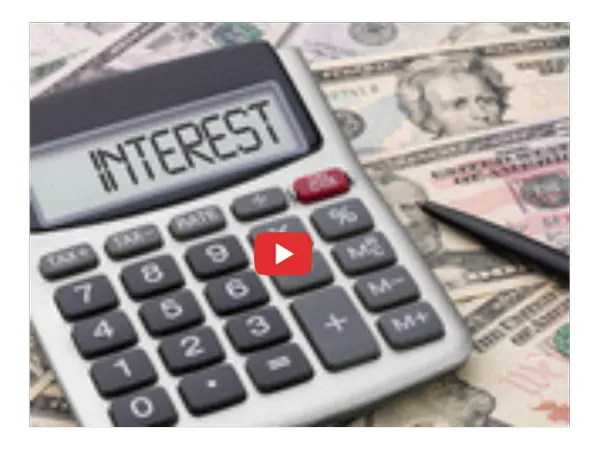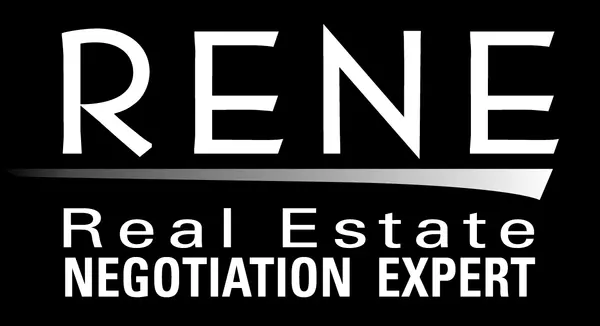

Leveraging Home Equity
What can you do with the equity you've built in your house? Plenty! You can make home improvements or pay college tuition, for example. Join me on June 30th 2024 to a one of kind event to get answers to your questions regarding how to tap into your homes existing equity and keep reading to learn more... So what is home equity? It's the difference between what your house is worth and how much you owe on your mortgage. As you make mortgage payments, you're building home equity. If your balance is lower than your home's value, you have positive equity that can be converted to cash. When there's a spike in home prices, as was true between January 2021 and June 2022, when an average of $60,000 was gained, your equity grew. Know the options There are some common ways to leverage equity: A lump-sum home equity loan. Repaid in monthly installments over a set term, generally five to 30 years, home equity loans typically have a fixed interest rate. A home equity line of credit. This is a revolving line of credit. You only pay back what you spend, with interest, and your credit line can be reused as long as you have access to it. HELOCs tend to come with variable interest rates. A cash-out refinance. These allow you to replace your existing mortgage with a home loan for more than what you owe. You pocket the difference between the two loans in cash. A reverse- mortgage. This is an age dependent option that is often mis-understood, but can be beneficial in some situations. Consider the uses Once you tap into your home equity, you can use the money for whatever you choose. Here are some possibilities: Home improvements. Improving your house can be a smart move, but not all improvements offer the return on investment you may be looking for. For example, one report found that replacing a garage door can give you a 93% ROI, while a typical midrange bathroom remodel returns only 59% and a bathroom addition only about 52%. Real estate investing. For $40,000 down, you may be able to buy a property that will provide enough rental income to cover the mortgage payments — including principal and interest — as well as property taxes, homeowners' insurance, maintenance, repairs, and the home equity loan or HELOC payments. Higher education expenses. You can pay for your children's higher education expenses, helping them reach educational goals that can lead them to higher future earnings. Medical expenses. Erase medical debt and its negative effects on your credit score. Your home equity may secure you a lower interest rate and monthly payments than using high-interest credit cards. Debt consolidation. Several thousand dollars in credit card debt at an average interest rate above 21% is much higher than the interest rates on a medium-term (10-year) home equity loan (about 5%) or a HELOC (close to 6%). Refinance. A simple refinance can produce a new loan with better interest rates and/or lower payments than you had with your purchase mortgage. This can result in savings over the life of your loan. When you need capital, tapping into your blossoming home equity can be a sound investment decision. Of course, there are risks associated with borrowing against home equity however the more you know about the different types of loans leveraging your home equity can be a wise decision. Always work with qualified legal and financial professionals.Modified by: Theresa Tscheschke Gunal to reflect Colorado local Real Estate ; Used courtesy of Rachel Lefkowitz, Home Actions, LLC
Read More

Building Long-Term Wealth With Your House
I know you want your children and grandchildren to live happy, healthy and prosperous lives — and through your home and property, you can take steps to providing that security! Click through to learn how you are already positively impacting the next generations' wealth. Often people ask me, "Theresa why did you become a Realtor®?" And my answer, "well because its in my family blood!" Real estate is one of the largest assets people own. Real estate tends to appreciate over time, so with care, home equity can be the foundation for your family's fortunes, resulting in profits that can affect your children's and grandchildren's wealth. I am living proof that owning real estate can put you on a path to growing generational assets. On both sides of my family it was instilled in me that "you can't make land" one of the safest investments is usually real property. Home equity Why all the buz about home equity? Home equity is the portion of your house and property that you own; it is not the full value of your house, but rather the house's current market value minus any outstanding mortgage debt. When you borrow to buy a home, your initial equity stake is usually just your down payment. Over time, your home equity increases as you make mortgage payments and as your home's market value hopefully climbs. You might look at your monthly mortgage payment as a forced savings account: You're investing for the future. When you make home improvements — remodeling the kitchen or adding energy-efficient features that provide tax deductions — you improve the property's appeal and thus its marketability. Your equity is your real financial potential! On top of it being a type of "forced savings account, "it is an asset that can be borrowed against or sold for profit. It is an asset that you can use essentially at anytime and usually with lower financial consequences than a credit card for example. You can tap into that equity through a home equity loan or line of credit, or with a cash-out refinance, perhaps getting better interest rates than on a personal loan. Transferring home equity to your descendants If you include the house in your estate, bequeathing it to your children, you can pass along this wealth to your descendants. Your descendants might choose one of several options: They might sell the house. They might make it their primary residence, especially if they have affection for the house, perhaps because they were brought up in it and/or have some appreciation for what you did to acquire and maintain it. They might choose to rent out the property, making it a potential source of passive income. Including the house in your estate can both improve bonds between generations and provide for the younger generation financially, as they will be able to leverage the home's equity for their own purposes. How do you pass your house and its equity to your descendants? There are a few options: You can leave it to them in your will. This document includes instructions to distribute your assets, such as your house, to the beneficiaries you choose. You can create a trust. This places your home in a legal entity that you create. The trust takes title to the house and then distributes ownership to your designated beneficiaries when you pass away or at a date you specify. You can create co-ownership of the house. Joint tenancy puts your heirs' names on your deed. Full ownership of the home passes to them when you die. There may be gift tax consequences and your heirs may pay more in capital gains tax if/when the property is sold. You can create a transfer-on-death deed. For this, you designate a beneficiary as you would for an insurance policy or investment account, and your home goes immediately to your heir on your death. It's efficient and avoids federal gift taxes. However, many states don't allow this type of deed. For best results, be sure to work on your home and generational wealth issues with legal and financial professionals. Not all options are good choices for all families. Owning a home is a cornerstone of the American dream; it can also be a tool for building generational wealth. Your house can give your children a financial advantage, as it allows them to combine your property with whatever they have made on their own. When you establish home equity, you create a lasting financial legacy for your family, setting up your heirs for long-term success. I love to share more of my own family history and how owning real estate changed my life and made it my life's passion to help others establish their own American dream! Modified by: Theresa Tscheschke Gunal to reflect Colorado local Real Estate ; Used courtesy of Racel Lefkowitz, Home Actions, LLC
Read More

How Much Home Can You Afford...Realistically?
You're ready to buy a home. The problem? With interest rates higher than you are comfortable with you're still not sure how much of a home you can afford. Keep reading to learn how to budget so that you end up with a short term monthly mortgage payment that won't cause you financial pain while you work on your long term plan. If you're like many Americans, your home will be the most expensive thing you own. It will be a key part of your estate as you plan for the long term. So you need to think strategically from the outset. To start with, one of the first steps is to talk with a mortgage lender and find out how much they think you can handle. You do not need to be ready to get preapproved to have this critical conversation. But pre-approval for a mortgage will be important before you start shopping for a home. What is preapproval? That's when you work with a mortgage lender to determine how large of a loan that lender is comfortable giving you. To begin, you'll provide a lender with copies of your last two paycheck stubs, last two months of bank account statements, last two years of tax returns and last two years of W-2 forms. Lenders will study these forms to verify your monthly income. They'll also check your credit to determine how well you've paid your bills and managed your debt in the past. Armed with this information, lenders will provide you with a preapproval letter stating how much of a mortgage you can qualify for. For instance, your lender might determine that it is comfortable giving you a mortgage of $400,000. Once you have this letter, you can shop for homes that you know you can finance. You won't waste time looking at $500,000 homes if you are only qualified for a mortgage of $400,000. The good news is you won't have to pay for getting a preapproval! You only pay a lender after that lender originates your mortgage loan and you sign the closing documents. You also are not required to apply for your mortgage with a lender that has given you a preapproval letter! You can still shop around with different lenders. Know the Market One thing that might be holding you back from purchasing is the rising costs of homes in your area. While this will likely be the case for even longer, it is still possible to find a mortgage that has flexibility built into it to help defer some of these higher costs. But how much are you comfortable paying each month? Knowing how much a lender is willing to lend you is one thing. Being comfortable with the size of a monthly mortgage payment is another. You will also want to consider other home expenses such as home repairs and remodels if you don't plan on buying a turn-key home. While these expenses can add up quickly having this information in mind up front can help you in the future. Just because a lender will approve you for a mortgage of, say, $375,000, doesn't mean that you'll be comfortable making the monthly payments that come with a loan of that size. Most lenders say that your total monthly debt, including your new estimated mortgage payment, should equal no more than 43% of your gross monthly income, which is your income before taxes are taken out. There is many calculators available out there that can help you determine these factors beforehand. Reach out if you would like help finding one. Know your budget But even the debt to income ratios are a guideline, and not a hard-and-fast rule. You might not want to spend 43% of your gross monthly income on debt payments. You might feel more comfortable spending 36% or less of your income. The key is to create your own household budget, listing your monthly expenses and income. Make sure to include expenses that vary each month, such as your utility bills, medical expenses, groceries and gas costs. Include too, discretionary spending, estimating how much you spend each month on eating out, going to the movies, shopping and other entertainment expenses. Once you've calculated this, you can see how much money you have available to spend each month on your mortgage payment. Be careful not to take out a mortgage that will result in a monthly payment that will consume all your extra cash. You don't want paying your mortgage bill to be a financial burden each month. Only you can determine how large of a mortgage payment you are comfortable taking on. Considering the 43% debt-to-income rule and getting preapproved can help you make that decision. But drafting a budget to determine exactly how much extra money you have each month is a key step that you should never skip. Modified by: Theresa Tscheschke Gunal ; Used courtesy of Sarah Tanggo, Home Actions, LLC
Read More

Lower Credit Scores Getting a Better Interest Rate?
I thought I'd share news From Brad Schenck with PrimeLending... There are lots of recent news articles and media stories indicting there are changes coming in May that will give people seeking a mortgage with lower credit scores better interest rates. Many of these reports indicate that those with lower credit scores will get better interest rates than those with better credit scores. This is FALSE!
Read More
Categories
- All Blogs (36)
- Buying (3)
- Closings (1)
- Colorado (7)
- Condo's and Co-op's (2)
- Curb Appeal / Outdoor (1)
- Extended Stay Living/ Furnished Rentals (1)
- HOA's (2)
- Home Improvement (1)
- Home Repair (1)
- Inspections (1)
- Insurance (2)
- Interior Design / Staging (2)
- Monthly News (6)
- Mortgages (2)
- Moving (1)
- New Builds (1)
- Property Taxes (1)
- Remodeling (4)
- Retirement/ Adult Communities (2)
- Selling (1)
- Taxes and Investing (1)
- Title (1)
- Transaction Process (1)
- Vacation / Holidays (1)
- Your Home is Your Biggest Asset - Financial Goals (6)
Recent Posts










SUBSCRIBE TO MY NEWSLETTER
Subscribe today to get real estate news you can use delivered to your mailbox biweekly on Thursdays!
GET MORE INFORMATION

Theresa Tscheschke Gunal
Broker Associate | License ID: FA.100087128
Broker Associate License ID: FA.100087128
